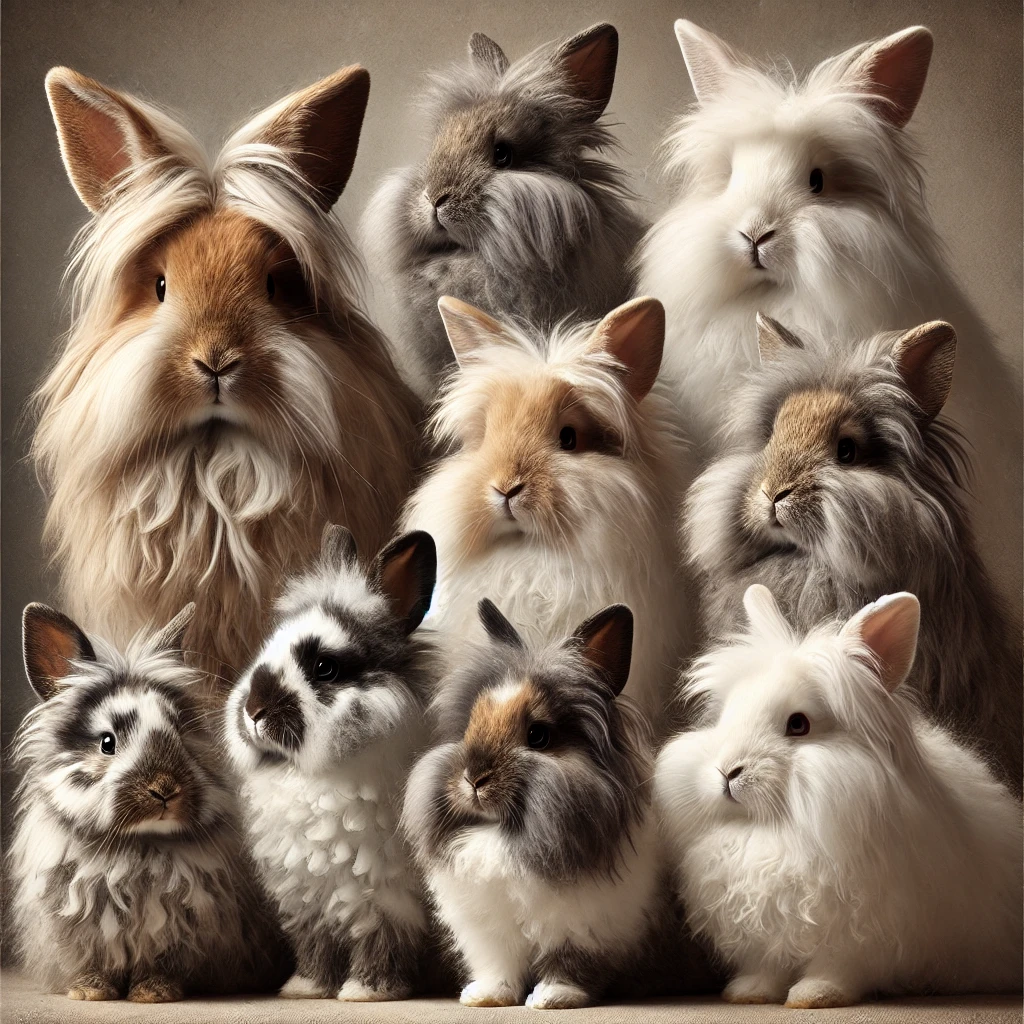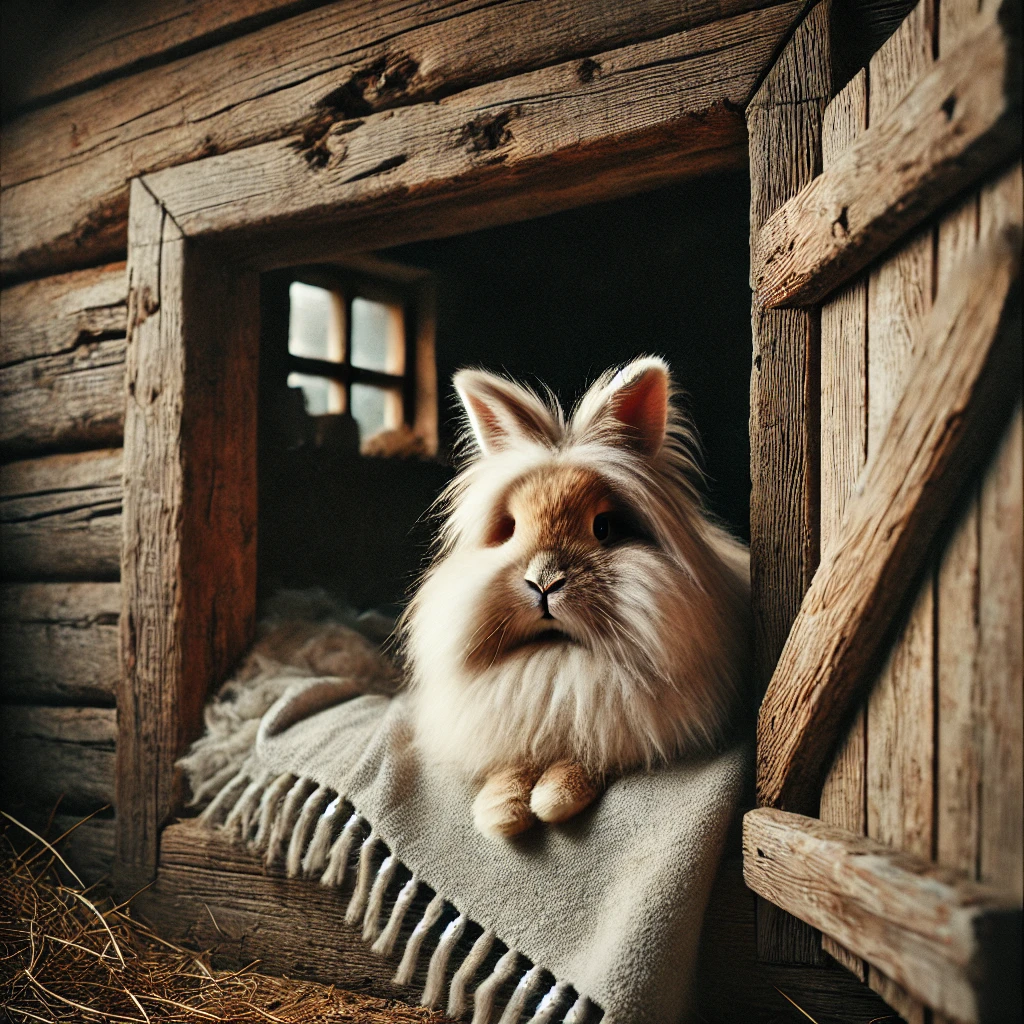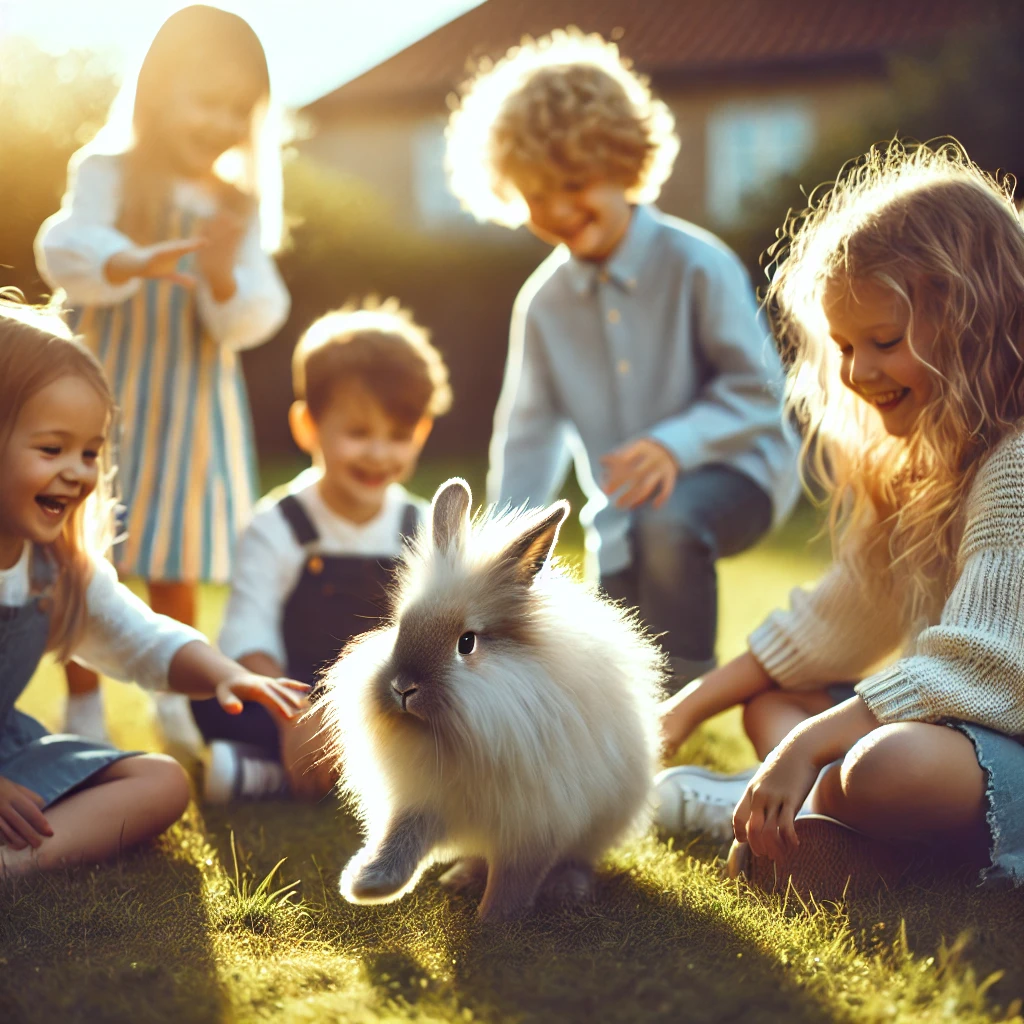French Angora rabbits are a popular breed, known for their fluffy coats and calm demeanor. These rabbits are not only adorable but also provide a significant amount of soft wool that can be spun into yarn. If you’re considering adding a French Angora to your family, there are several important things to know about their care, temperament, and living needs. This blog will cover everything you need to make an informed decision, written in simple English for readers of all ages.
Quick Facts about French Angora Rabbits
Before diving into the details, let’s take a quick look at some basic facts about the French Angora rabbit:
-
Fact Details Species Name Oryctolagus cuniculus Family Leporidae Care Level Moderate Grooming Level High (due to their wool) Temperament Calm, friendly, social Colors Agouti, broken, shaded, self, ticked, pointed white, wide band Lifespan 7–12 years Size 7.5–10.5 pounds Diet Hay, pellets, fresh vegetables Best Environment Indoor pens or outdoor raised hutches Compatibility Can live with other bonded rabbits
Cost of Owning a French Angora Rabbit
French Angoras can vary in price depending on whether you’re getting a pet or a show-quality rabbit. On average, a French Angora costs between $20 to $250. Rabbits bred for shows or wool production are on the higher end due to their specific qualities and pedigree.
It’s important to consider not only the initial cost but also the ongoing expenses for food, grooming supplies, and vet care. Because these rabbits require frequent grooming, you’ll need the right tools, which can add to the overall cost.
Cost Breakdown:
- Initial Cost: $20 to $250
- Ongoing Costs: Grooming tools, food, vet care
French Angora Rabbit Personality and Behavior
French Angora rabbits are known for being gentle and calm. They enjoy socializing with people and other rabbits, although they may be a little shy at first. With time and consistent handling, they become very affectionate and friendly.
French Angoras love to explore their surroundings and are often happiest when they have a safe space to roam. They can be trained to use a litter box, which makes them more manageable when kept indoors.
These rabbits are also great for families that are willing to dedicate time to their care and socialization.
Key Traits:
- Temperament: Calm, friendly, and social
- Best For Families, individuals looking for a wool-producing pet
- Interaction: They enjoy human company but need to be handled regularly to build trust.
Appearance and Varieties of French Angora Rabbits
One of the most noticeable features of the French Angora rabbit is its fluffy coat. Unlike some other Angora breeds, the French Angora’s head and feet are not as wooly, which makes them stand out. Their bodies, however, are covered in thick, soft wool that is ideal for spinning.
French Angoras come in several colors and patterns, including:
- Agouti: A natural brown color with bands of different shades.
- Broken: A mix of white and another color, often with spots or splotches.
- Self: Solid color all over.
- Shaded: Lighter body with darker ears, feet, and nose.
- Ticked: Solid body color with guard hairs of a different color.
- Wide Band: Similar to agouti but without dark tips.
These rabbits are visually striking and make an excellent addition to homes that appreciate their unique appearance.
How to Care for French Angora Rabbits
1. Enclosure Requirements
French Angoras need enough space to move around comfortably. The minimum cage size should be around 24”x24”, but a larger enclosure is always better. Outdoor hutches should be raised to protect them from the elements and predators. When kept indoors, a safe, rabbit-proof area is ideal for exercise and exploration.
Ensure their living space is clean and well-maintained. Use a wire-bottom cage with caution, as it can irritate their feet. Add soft, absorbent bedding to keep them comfortable.
For more info on their lifestyle Can Angora Rabbits Live Outside
2. Bedding and Litter Box Training
French Angoras need low-dust, absorbent bedding to prevent respiratory problems. Options like fiber-based or corn-based bedding work well. Avoid dusty materials like clay-based products that can irritate their sensitive respiratory systems.
These rabbits can be trained to use a litter box, making clean-up easier and keeping their wool clean from urine and waste.
3. Temperature and Environment
French Angoras are sensitive to extreme temperatures, so they should be kept in a moderate environment. They are most comfortable in temperatures between 50–75°F. In cold weather, they need a warm shelter away from wind and snow, while in hot weather, cool treats and shaded areas will help prevent heatstroke.
Feeding Your French Angora Rabbit
A healthy diet is essential for your French Angora. Their diet should consist of about 80% hay, with the rest made up of fresh vegetables and rabbit pellets. Timothy hay is the best option for adult rabbits. They also enjoy greens like romaine lettuce, kale, and spinach, as well as fruits like apples and melons (in moderation).
Since French Angoras produce a lot of wool, they require higher protein levels in their diet. You might need to purchase pellets specifically made for wool-producing rabbits. Providing fresh water is a must, and ensuring that they get enough fiber in their diet will help prevent wool block—a condition where ingested fur causes digestive issues.
Key Diet Components:
- Hay: 80% of their diet (primarily Timothy hay)
- Fresh Foods: Vegetables like kale and spinach; fruits occasionally as treats
- Pellets: High-protein pellets for wool-producing rabbits
Grooming and Wool Care
One of the biggest responsibilities of owning a French Angora is grooming. These rabbits require regular brushing, ideally every day, to prevent their wool from matting. You’ll also need to keep an eye out for any loose wool they might ingest while grooming themselves, which can lead to a wool block.
Spot cleaning with a damp cloth can help, but avoid bathing your rabbit, as they can easily become cold and stressed. Regular grooming sessions will also strengthen your bond with your rabbit, making them more comfortable with handling.
Grooming Essentials:
- Brush Daily: Use soft brushes to prevent matting.
- Trim Nails: Regularly trim their nails to avoid overgrowth.
- Wool Block Prevention: Provide a high-fiber diet to reduce fur ingestion.
Health and Common Issues
French Angora rabbits are generally healthy if given proper care, but they are prone to a few health issues. The wool block is a common concern due to its long fur. Ensuring they have a high-fiber diet and regular grooming will reduce the risk.
Dental problems can also arise because their teeth grow continuously. Giving them plenty of hay helps them wear down their teeth naturally. Lastly, regular vet checkups are important to monitor their overall health.
Common Health Issues:
- Wool Block: Caused by ingesting too much fur.
- Dental Problems: Ensure hay is always available for teeth maintenance.
- Obesity: Maintain a balanced diet and regular exercise.
Breeding French Angora Rabbits
Breeding French Angora rabbits requires careful planning and research. These rabbits can start breeding when they are between 6 to 9 months old. However, breeding should not be rushed as overbreeding can cause health problems for the mother, affecting her wool quality and overall well-being.
When preparing to breed, ensure both the male (buck) and female (doe) are healthy. It’s also important to know what traits and coat colors you want to pass on, as certain combinations will produce different wool textures and colors. Once bred, the doe will carry her litter for about 28 to 31 days.
Breeding Tips:
- Age for Breeding: 6–9 months old
- Pregnancy Duration: 28–31 days
- Nesting Area: Provide a comfortable, warm area with soft bedding for the doe to give birth.
- Litter Size: Typically, French Angoras have 4 to 8 babies in a litter.
- Separation: The buck should be separated from the doe after mating and should not be present during birth.
Always monitor the doe during her pregnancy, and ensure she has plenty of water, food, and a stress-free environment. If you are new to breeding, it is a good idea to consult an experienced breeder or vet for guidance.
Socializing and Interaction with Other Pets
French Angora rabbits are social animals that enjoy the company of humans and other rabbits. They can bond well with another rabbit but should be introduced slowly. These rabbits can also get along with other small animals, but supervision is necessary.
If you have dogs or cats, it’s important to be cautious as rabbits are prey animals. Some dogs and cats might show interest in chasing or hurting the rabbit. Always supervise interactions between your rabbit and other pets.
Are French Angora Rabbits Right for You?
French Angora rabbits make wonderful pets, but they require a lot of care, particularly with grooming. They are best suited for families who are prepared to dedicate time and attention to their upkeep. These rabbits are not ideal for very young children, as they can be fragile and require careful handling.
If you’re looking for a pet that offers companionship and the benefit of wool production, the French Angora rabbit could be a perfect choice. With the right care, they will be a delightful and fluffy addition to your home.
Conclusion: A Fluffy Friend That Needs Care
Owning a French Angora rabbit can be rewarding, especially if you’re interested in their wool or enjoy the companionship of a calm, gentle pet. However, these rabbits require regular grooming, a proper diet, and a safe environment to thrive. With a bit of care and attention, your French Angora rabbit can live a happy and healthy life, bringing joy to your home for years to come!
FAQs
- What is the difference between French Angora and English Angora?
French Angoras have less wool on their faces and ears, while English Angoras are fully covered in wool, including their faces. French Angoras are easier to groom due to less wool around their face. - Are French Angora rabbits good pets?
Yes, French Angora rabbits are calm, social, and friendly, making them good pets for those willing to handle their grooming needs. - How much does a French Angora rabbit cost?
A French Angora rabbit typically costs between $20 to $250, depending on whether it’s a pet or show-quality rabbit. - What is the use of French Angora?
French Angoras are primarily used for their soft wool, which is spun into luxurious yarn for knitting and felting. - Why is Angora so expensive?
Angora wool is expensive due to the labor-intensive grooming and shearing process, as well as its softness, warmth, and rarity compared to other fibers. - What is Angora good for?
Angora wool is ideal for making soft, warm clothing like sweaters, scarves, and hats, prized for its lightweight feel and insulation.






Leave a Reply